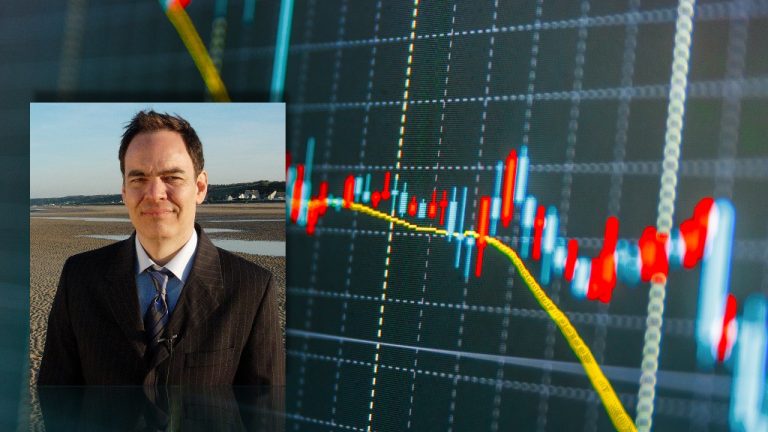Keiser Insists ‘Bitcoin Inversely Correlated To USD Not Stock Markets’ After Crypto Market Tumble
Publikováno: 23.9.2020
 Reports that global banking giants helped criminals launder money for close to two decades helped spark the crash of global stock markets on Monday, September 21. Also tumbling in tandem with stocks were cryptocurrencies thus leading to renewed concerns that digital assets are intertwined with the global financial system. However, these concerns are dismissed by […]
Reports that global banking giants helped criminals launder money for close to two decades helped spark the crash of global stock markets on Monday, September 21. Also tumbling in tandem with stocks were cryptocurrencies thus leading to renewed concerns that digital assets are intertwined with the global financial system. However, these concerns are dismissed by […]
The post Keiser Insists ‘Bitcoin Inversely Correlated To USD Not Stock Markets’ After Crypto Market Tumble appeared first on Bitcoin News.

Reports that global banking giants helped criminals launder money for close to two decades helped spark the crash of global stock markets on Monday, September 21. Also tumbling in tandem with stocks were cryptocurrencies thus leading to renewed concerns that digital assets are intertwined with the global financial system. However, these concerns are dismissed by Max Keiser, a bitcoin pioneer and a Wall Street analyst who insists that bitcoin behaves differently.
Keiser’s latest comments about bitcoin were prompted by remarks made by one Twitter user who questions the commonly held view that cryptocurrencies are immune from the global financial system. In a tweet, the user expresses concern that each time “when stock markets go down bitcoin gets pummeled.” The user insists that “if bitcoin is ever going to be successful it needs to break away from bankings thumb. Until then.”
In his response, Keiser argues that “bitcoin, like gold, is inversely correlated to the $USD – *not* the stock market.” In a warning to bitcoiners, Keiser says “don’t be fooled by randomness.”
Just like Keiser, many bitcoin supporters are adamant that the top cryptocurrency follows a different path to that of company stocks. They point to the movement of the crypto shortly after crashing by 40% on March 12, the so-called black Thursday. At the time of the crash, global markets were also in the red yet it is bitcoin which appears to have recovered and grown at a much faster pace than stocks.
To illustrate, an observation of data available on Markets.bitcoin.com shows that bitcoin nearly doubled in value between March and September 2020. Specifically, on March 21, bitcoin, which dominates the crypto market, traded at $5,792. Yet by end of day on September 21, the leading digital asset traded at $10,499.
In comparison, the Dow Jones Industrial Average, the widely-watched benchmark index in the U.S. for blue-chip stocks, closed March 20 at 19,173 points. However, exactly six months later, the index closed the day on September 21 at 27,147 points, representing growth of 41.5% from March.
It is seemingly this data that convinces some bitcoiners that the cryptocurrency has an inverse relationship with fiat currencies like the USD.
What do you think of Keiser’s assertions about bitcoin’s relationship with the USD? Tell us what you think in the comments section below.
The post Keiser Insists ‘Bitcoin Inversely Correlated To USD Not Stock Markets’ After Crypto Market Tumble appeared first on Bitcoin News.


